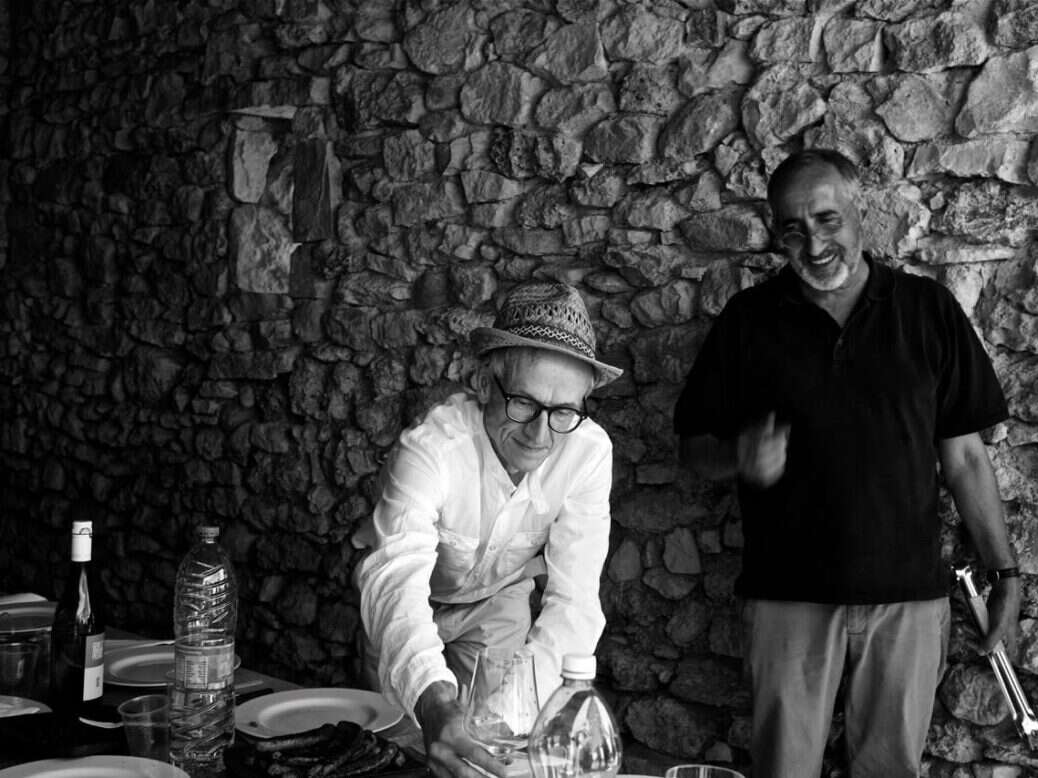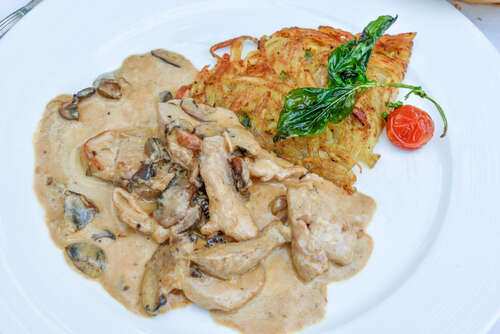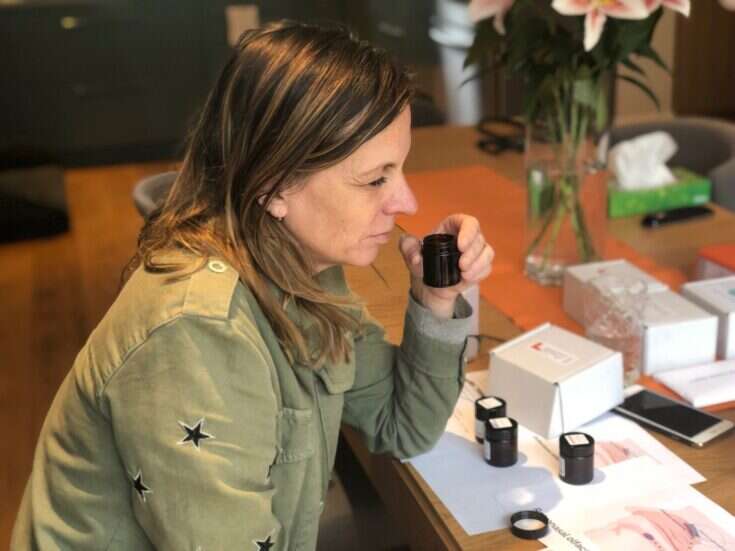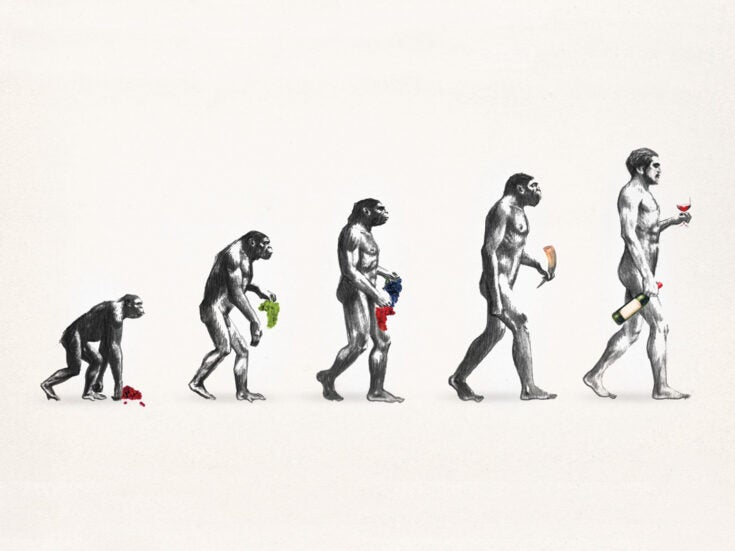
In part two of a candid and wide-ranging interview to mark the publication of his superb new book Drinking with the Valkyries, WFW contributing editor Andrew Jefford opens up about the art and craft of (wine) writing, his abiding love of wine, and his hopes and fears for its future. David Williams puts the questions.
An interview with Andrew Jefford Part One: Discovery
Andrew Jefford on the art, craft, and reality of wine writing
David Williams: What do you feel is the job of the wine writer. What are you trying to achieve with your wine writing?
Andrew Jefford: To inspire and inform.
DW: Is that possible in the current publishing climate? Just in practical terms, is it more or less difficult to make a living from wine writing now than it was when you started?
AJ: It was very difficult then, and it’s very difficult now. I believe making a living exclusively from wine writing is only possible for those of private means, who have no children, who are single, or who have partners with “proper jobs.”
DW: And for those lucky few who are able to participate, is wine writing and wine publishing in a healthy state now? How does it compare to when you started your career?
AJ: It’s a much broader field than when I began, and it is more professional, too. That’s good. There is remarkable scholarship inside this world—that’s great. It’s what the wine world merits. But there are some buts.
We now have wine writing and wine criticism. Parker, the original critic, was great—an explosive, super-enthusiastic, hedonistic wine-loving human with a fine brain and great sensory apparatus who made the hunt uphill and down dale after “the best” seem both innocent and terrific fun. But I’m beginning to have misgivings about wine criticism and the cult of the tasting note. (See also WFW 75, pp.128–40).
It’s now practiced on an industrial scale; most of it seems repetitive and not fun at all; some of it is suspect; and it spews out scores that jackboot the wine world into hierarchies and ranks and grades and strata—and inevitably emphasizes and reinforces the transactional nature of wine: its greatest flaw. (See also WFW 72, pp.132–37.) Criticism also attracts and feeds pomposity and self-importance, and it stokes the exaggerated price inflation that has afflicted the wine world over the past couple of decades.
Worst of all, though, I suspect it makes most “ordinary” wine lovers feel inadequate, impotent, and impecunious. What, you haven’t tried X’s wine? You don’t have any Bierzo/Bolgheri in your cellar? Are you serious? No Chave? No Leroy? What, you missed buying the 2016s? You’re still collecting Barossa Shiraz? You’ve never tried Musigny? You bought that shitty Meursault—this one is six points better! What kind of an idiot are you?
And it’s all based on a lie: that excellence, annointed by the critic, is something objectively real and enduring rather than subjective and ephemeral. And that this thing called excellence matters more in wine than difference. That’s what scores shout at you.
So, in fact, Parker accidentally sired this monstrous cuckoo-child that is now eating the wine world. Wine enthusiasts have somehow convinced themselves they need the 300,000 tasting notes offered by The Wine Advocate or the 200,000 notes on jancisrobinson.com. Actually, reading 100 tasting notes, even if they were written by William Shakespeare, would drive anyone mad; the genre is of limited interest, and I speak as someone who is regularly asked to write tasting notes. Almost all tasting notes are irrelevant to almost all individual wine drinkers, for reasons of cost, access, and basic drinking (and storage) capacity. So, why are we signing up to be rained on by this deluge? It’s mad, and it’s boring. There are better ways of exploring the wine world.
I’d stress that there are some outstanding palates and scholars working in the field of wine criticism, from whom I’ve learned and will learn much. They work very hard, and I admire that hard work. If you are a wealthy geek—nothing wrong with that—or a merchant or a sommelier, outstanding critics like William Kelley, Stephan Reinhardt, Luis Guttiérez, David Schildknecht, Jeb Dunnuck, Antonio Galloni, and their colleagues will be more useful to you than an irritating wasp like me. And of course there is plenty of other, slightly juicier stuff on The Wine Advocate and especially on jancisrobinson.com. Jancis is the CIA of the wine world, and that site gives you the beautiful and inspiring wine descriptions of Tamlyn Currin (better than “tasting notes”) and the deeply thoughtful and scholarly work of Julia Harding MW.
It’s really the premise that is wrong and that needs dismantling. Repetitive, seemingly bot-written notes, scores, and bottle shots inspire no one and have very little to do with how most people enjoy wine; they’re a giant turn-off. Obviously my incy-wincy, rinky-dinky little book isn’t going to change anything, but that’s what I think.
Andrew Jefford on wine and the wine world
David Williams: Which winemakers or wine people have been most interesting for you as a writer, a drinker, and a human being?
Andrew Jefford: Of those I know, I’d cite Brian Croser, Olivier Humbrecht, Stéphane Derenoncourt, Louis Barruol, Dirk Niepoort, Pedro Parra, and Peter Hall.
DW: And what about places—which wine regions have left the deepest impression on you?
AJ: The Douro, where I went first, marveling at the vine’s tenacity in adversity. South Australia, where we lived as a family with very young children for 15 months, since it completely revised my understanding of landscape and the way landscapes evolve and helped me understand geological time. The Mosel and the Rheingau for their beauty, their cultural richness, and the astonishing physical effort they ask of wine growers. Niagara in winter in a cold snap—a kind of intimation of the coldness of the rest of the universe.
DW: Your career has coincided with a time of rapid change in the wine world. What do you feel have been the most significant developments?
AJ: Nothing surpasses global warming, Trump’s war on truth, and now Russia’s invasion of Ukraine and the tacit approval of China for that invasion. Let me explain.
Global warming, if unchecked, will in the end wreck the wine world along with most of the rest of agriculture and put an end to the interesting human phenomenon. We will take most of Earth’s present-day species with us when we go. Given how rare life seems to be in the universe, this is a shocking failure, and it could happen within a generation or two. Seriously.
The world’s existing flora and fauna—us and Vitis vinifera included—are flourishing during an interglacial between Ice Ages, though many species go back to the Eocene and beyond and have therefore adapted to a wide variety of climates over time. But everything we know and draw our life and sustenance from—our chain of life, if you like—is the product of an interglacial. We’re all creatures of the interglacial.
By pumping out carbon, we’ve suddenly flipped our climate from an interglacial into a hothouse scenario. Instantly, in a fraction of a second—on geological or evolutionary time scales.
The planet will cope just fine—it’s often been there before. For 85 percent of Earth’s history, there’s been no ice at the poles. Over the past 500 million years, CO2 levels have mostly been over 1,000 ppm; we’re at 419 ppm today. It’s just that much of the existing flora and fauna won’t cope; there’s no time to adapt. It’s way too quick for normal mechanisms. We’d need 50,000 years or more, and we’ve got a decade or two—hence the anthropogenic extinction episode.
We’ve had 2.2°F (1.2°C) of warming from pre-industrial levels already, and look at the chaos that is causing: fires the size of Ireland in Australia and almost as big in California, drought, spring frosts, storms, floods, hail, disease, galloping species loss. We may pass 3.6°F (2°C) by 2035, with no chance of going into reverse. 3.6°F is catastrophic, and it is going to happen.
We can only overcome this unthinkably grave challenge by working together as a species—yet we are marching briskly backward away from globalization and global cooperation toward the insanity of nationalism, nativism, and 19th-century imperial thinking; and we’re embracing the weak-minded short-termism of populists. (Where we have the option: 70 percent of the world’s citizens now find themselves living under autocracy.)
Russia is actually murdering its neighbors. America and China are limbering up for war. American democracy is under attack by a sizable minority of Americans. They have arms and they will use them, since they’ve given up on truth and are committed to a cult. People everywhere assume and assert that their own country and their own citizens are more important than the world as a whole and than life as a whole.
I mean, David, I could say to you “grape handling” or “tannin management” are “the big wine world breakthroughs” of the past 20 years, but forget it! The wine world is myopic enough as it is, with all its heavy glass bottles, its rushing off to Singapore for a vertical, and its crazed prices. We’re staggering around on the edge of the cliff with a blindfold on, sniffing away at La Tâche and DP.
DW: Despite the scale of these crises, your book nonetheless makes a convincing case for wine’s importance. It is also filled with joy and wonder. Do you find it hard to maintain those emotions as you go about your work? Does wine still fill you with the same joy as it did when you started? Do you have the same capacity for wonder? Or has making a hobby and passion your job dulled its appeal on occasion?
AJ: I can’t say “the same joy,” because my 16-year-old joy was a very innocent one, and it’s hard for a 66-year-old after five decades of hard work to feel completely innocent about that labor. But in a way, it is a deeper joy.
I now know I don’t need to obsess about or even try “the best.” I now know I don’t need “to collect.” All I need to do is taste and think. The former needn’t cost much, and the latter is free—and both are exquisitely precious in my life. Wine brings us closer to our earthly home. Wine brings us closer to our ancestors and their struggles and sufferings. Wine brings us closer to other human beings; it can help nourish love and meaning, and thus structure our lives. We seem to need ritual, and wine is a fine ritual tool. Wine is dangerous, and we need to understand danger. Wine is climate litmus. It’s important for human beings to be, rather than merely to exist, and wine can help us be and help us understand being. For all these things and more, yes, I still love wine.
World of Fine Wine is hosting the World’s Best Wine List Awards on September 12. Sign up for the event here






